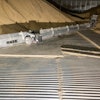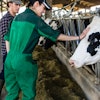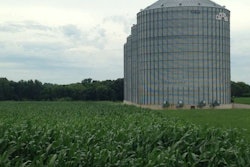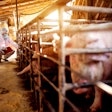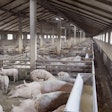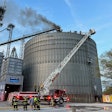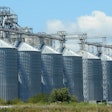
Fire crews battled a two-alarm fire Thursday atUnited Grain Corp.'s grain elevator at the Port of Vancouver.
According to a report atKPTV, crews responded to a call at 5:30 a.m. for a fire at a grain elevator.
They found a working fire in a conveyor between a grain silo on shore and a barge on the water operated byShaver Transportation.
All employees were evacuated and no injuries reported.
Barge was carrying soft white wheat
The fire was initially reported by United Grain’s longshore barge operator, who called the office to report seeing smoke on a conveyor, according to a statement from the company toThe Columbian.
“Our staff took immediate action: sounded the evacuation alarm; hit emergency stop for all equipment; called 911, as well as port security, Shaver Transportation, the vessel’s agent and captain and our neighboring facility,Great Western Malting, to notify them of this emergency,” the company said.
Great Western Maltingbattled its own fire in October 2021when welding sparks from maintenance workers dropped into a below-ground grain silo storing 200 to 300 pounds of grain.
The Shaver barge was carrying 100,000 bushels of soft white wheat from United Grain’s McNary facility at the Port of Umatilla. It was 99% unloaded at the time of the fire, the company said.
A total of 17 units were assigned to the fire, including fire boats from Vancouver and Portland Fire and Vancouver Fire’s Hazardous Materials team, according to the fire department.
'Largest grain export facility on the West Coast'
United Grain'sVancouver Export Terminal, on the Columbia River in Washington State, exports up to 6 million metric tons of grains and oilseeds per year.
Each year, the company loads up to 120 ocean-going vessels from the facility that consists of a 715-foot dock and a barge dock that allows simultaneous barge off-loading at a rate of 2,000 tonnes/hour.
United Grain says the facilities elevator has the largest storage capacity on the West Coast at 8.3 million bushels with an annual handling capacity of 5 million tonnes and more than 290 silos for segregating wheat, soybeans and corn.




